Find Help
More Items From Ergsy search
-

Top 5 questions about having a general anaesthetic
Relevance: 100%
-
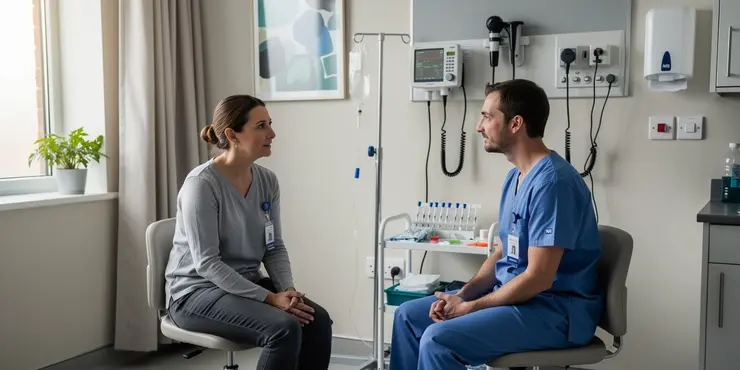
My General Anaesthetic: What's Going To Happen? Sarah's Story at Worcestershire Royal Hospital.
Relevance: 83%
-
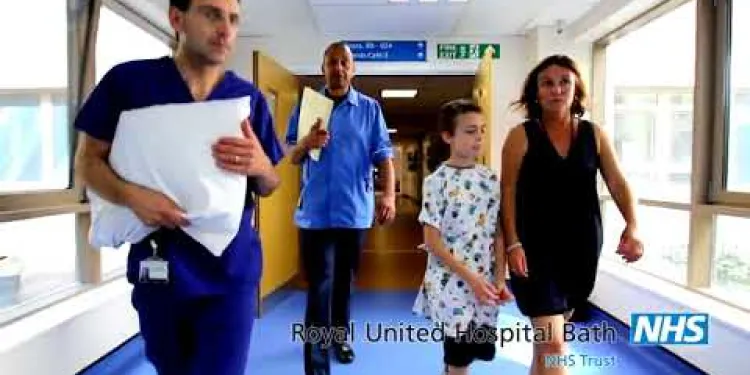
Having an anaesthetic for your operation - for over 8s
Relevance: 67%
-
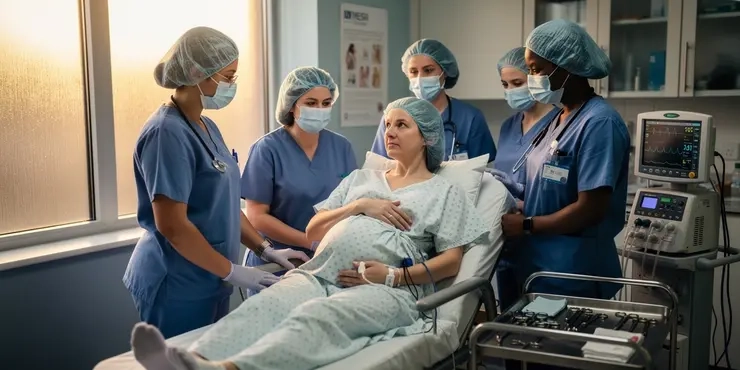
Anaesthetic procedure for elective caesarean section (C section)
Relevance: 65%
-

Your anaesthetic choices for your planned hip or knee replacement surgery at the RUH.
Relevance: 60%
-
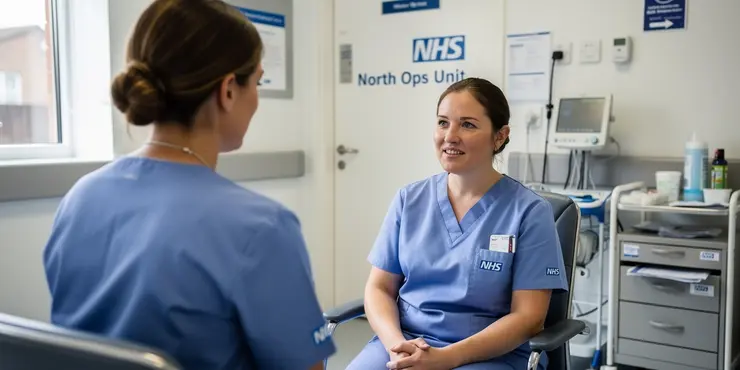
Surgery under local anaesthetic in the Minor Ops Unit at North Bristol NHS Trust
Relevance: 58%
-
How is health-related anxiety different from general anxiety?
Relevance: 32%
-

What is the difference between the Chief Law Officer for England and Wales and the Solicitor General in the UK?
Relevance: 32%
-
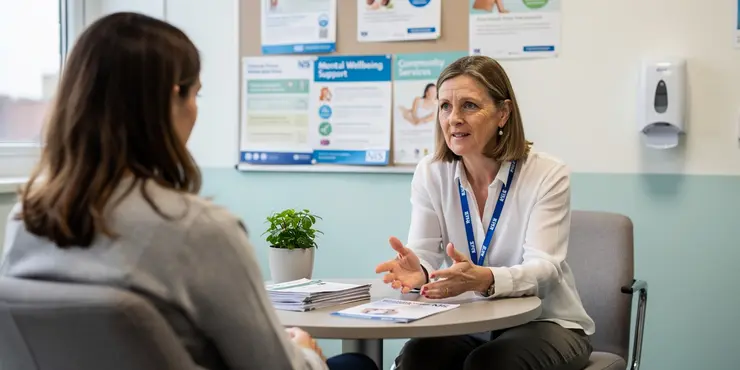
What is a social prescriber, and how do they support general practice?
Relevance: 31%
-
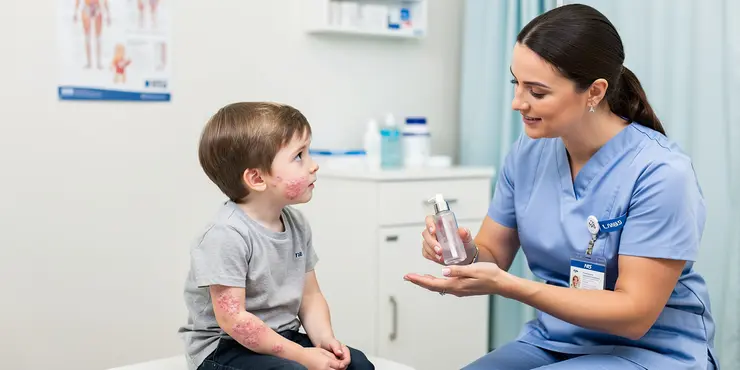
What is eczema? General Information
Relevance: 31%
-

HOW A REDUNDANCY WORKS - General Information
Relevance: 30%
-
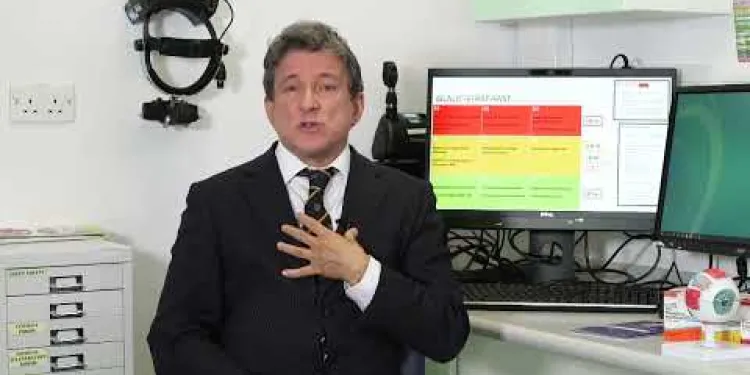
Glaucoma: general side effects of eye drops
Relevance: 29%
-
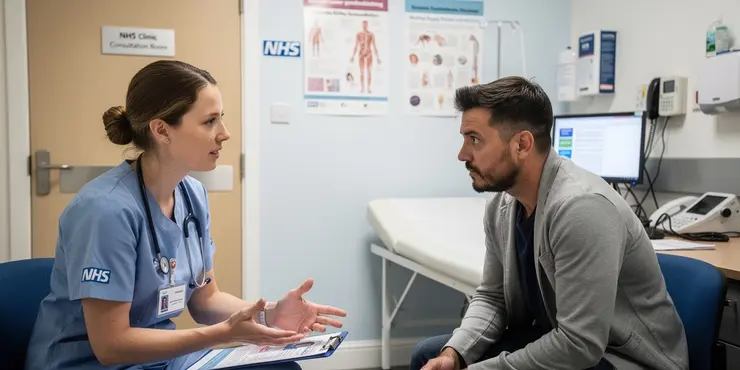
What are the medical uses of ketamine?
Relevance: 28%
-
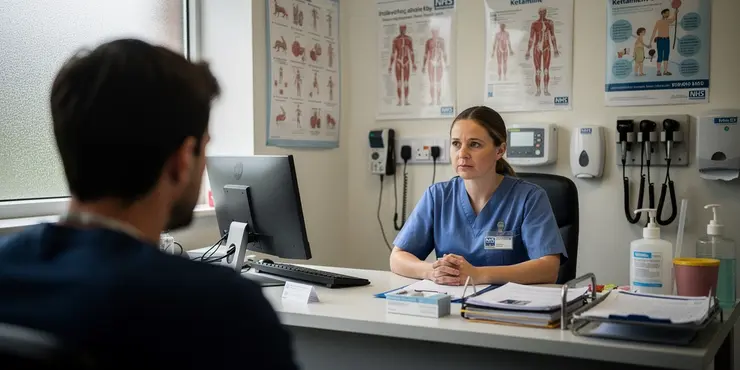
Are there any legal uses for ketamine?
Relevance: 27%
-
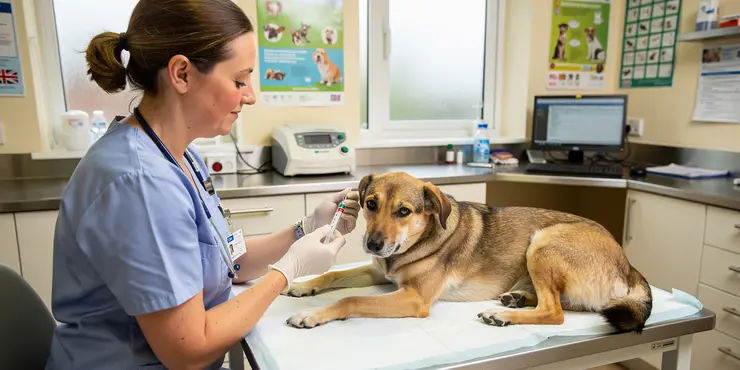
How is ketamine used in veterinary medicine?
Relevance: 26%
-
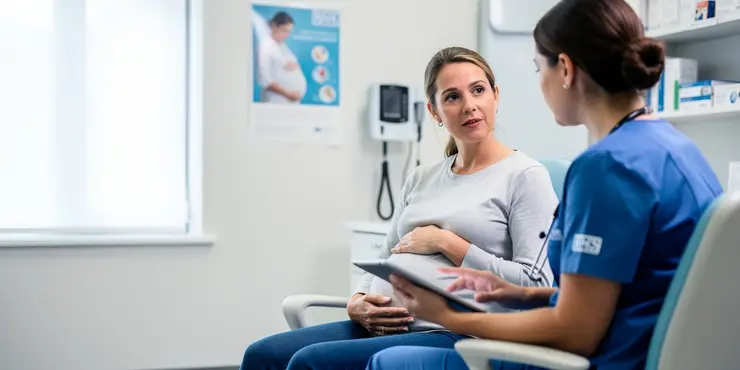
What are some general recommendations for medication use during pregnancy?
Relevance: 26%
-
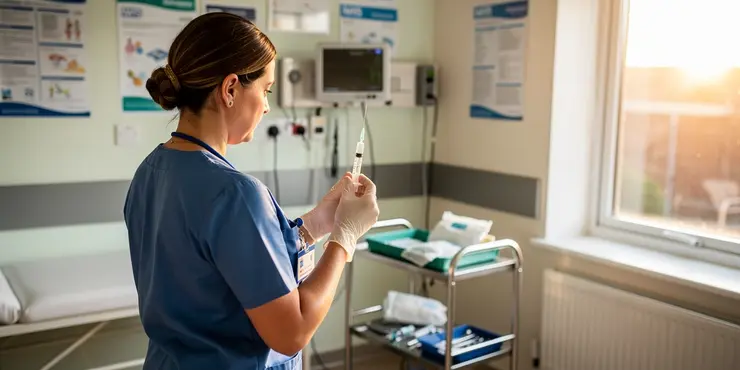
What is spinal anaesthesia?
Relevance: 26%
-
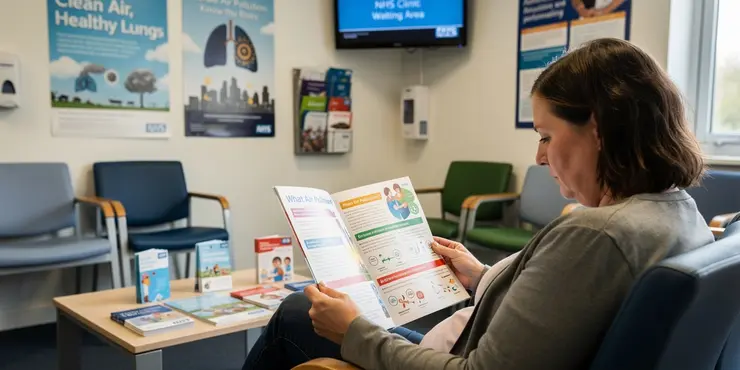
Where can I find general information about air pollution and asthma?
Relevance: 25%
-
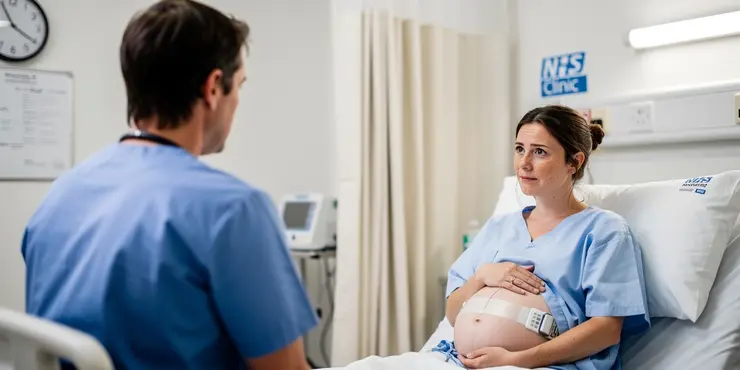
Is spinal anaesthesia safe for a Caesarean section?
Relevance: 25%
-
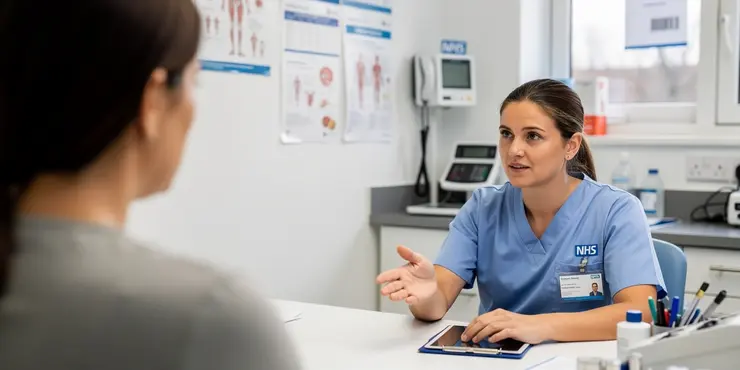
How much caffeine is generally considered safe for people with high blood pressure?
Relevance: 24%
-
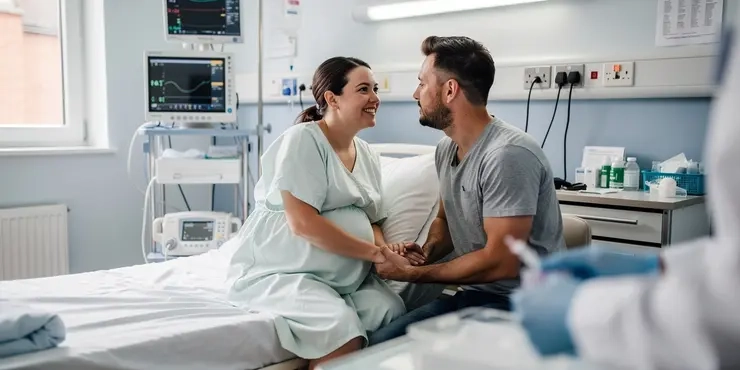
Spinal Anaesthesia for Caesarean Section
Relevance: 24%
-
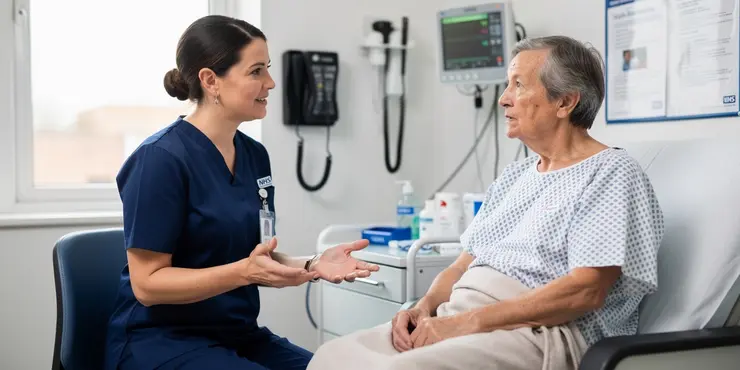
What type of anaesthesia is used during hip replacement surgery?
Relevance: 22%
-
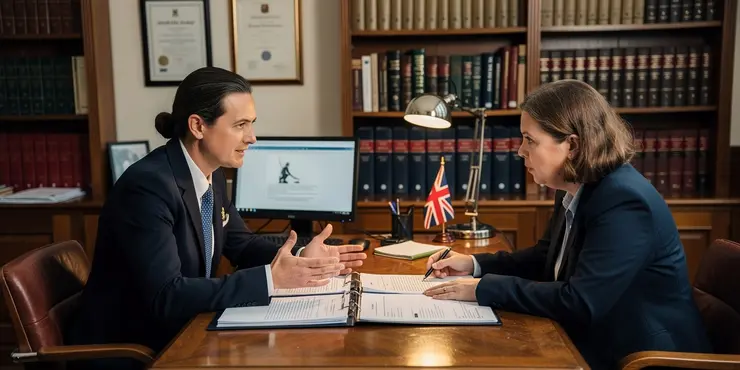
Is ketamine considered a controlled substance in the United States?
Relevance: 21%
-
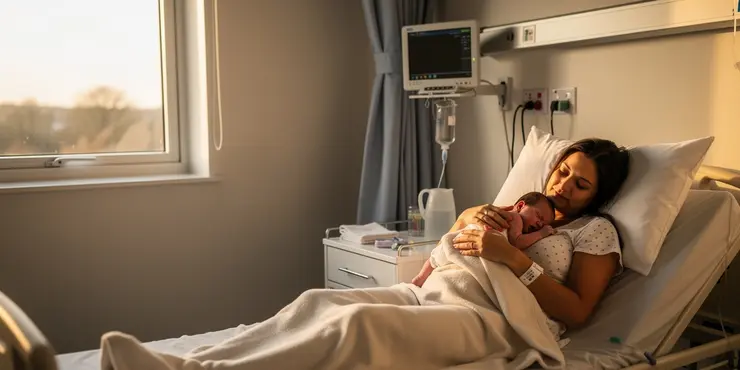
Can I breastfeed immediately after a Caesarean section under spinal anaesthesia?
Relevance: 20%
-
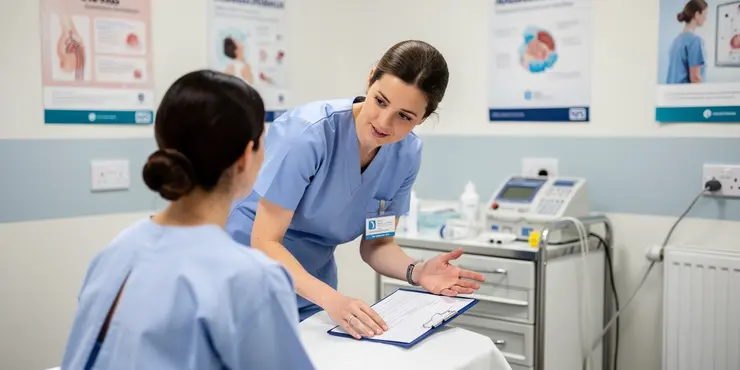
How is spinal anaesthesia different from an epidural?
Relevance: 19%
-
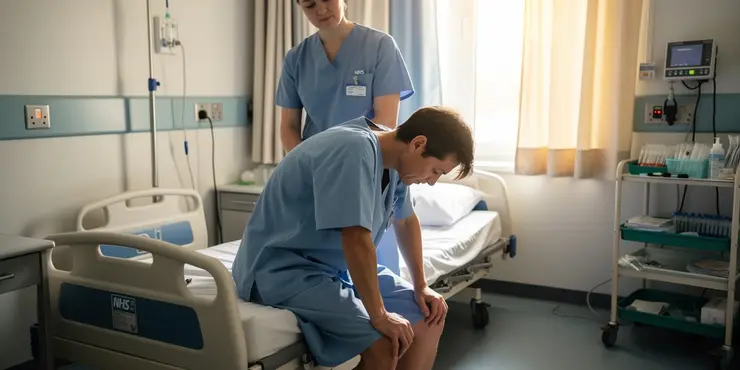
How will I be positioned for spinal anaesthesia?
Relevance: 19%
-
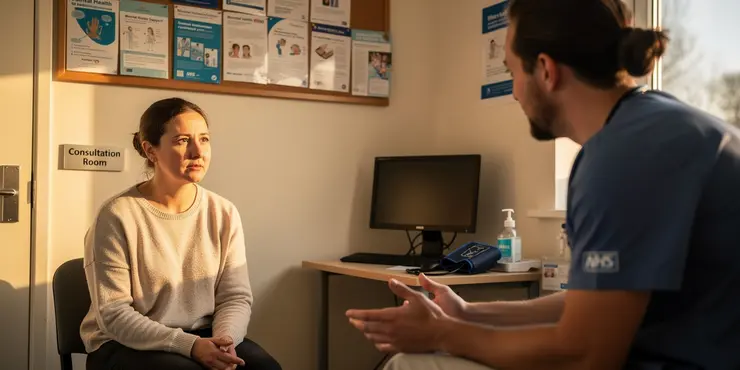
Is ketamine legal?
Relevance: 19%
-
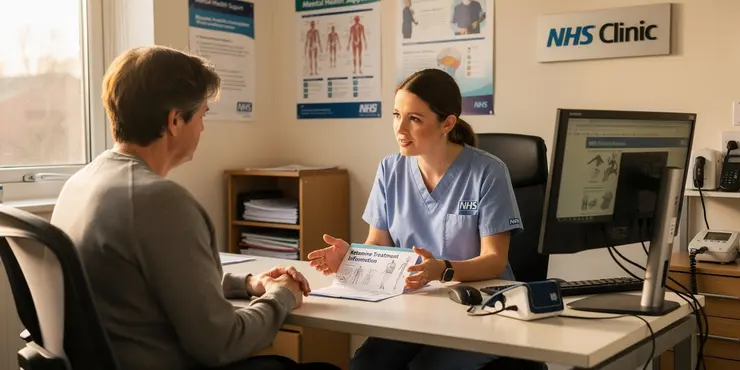
What is the classification of ketamine?
Relevance: 19%
-
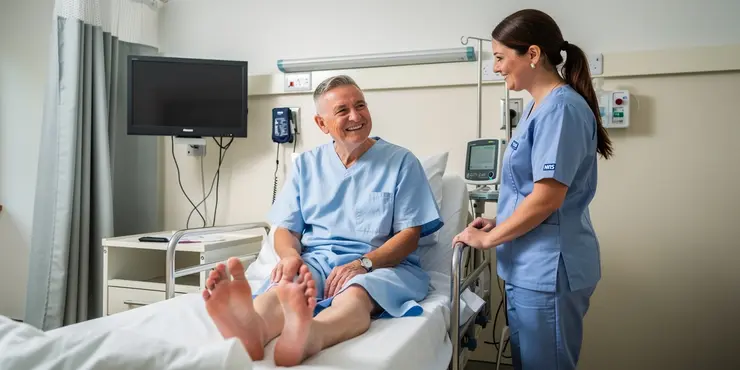
What should I expect after the spinal anaesthesia wears off?
Relevance: 19%
-
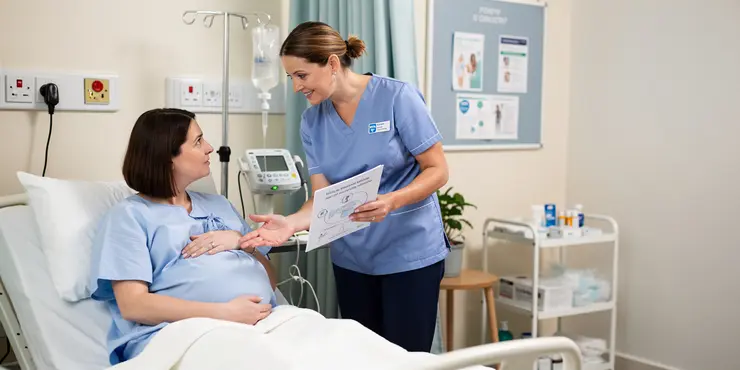
Will I be awake during a C-section?
Relevance: 19%
-
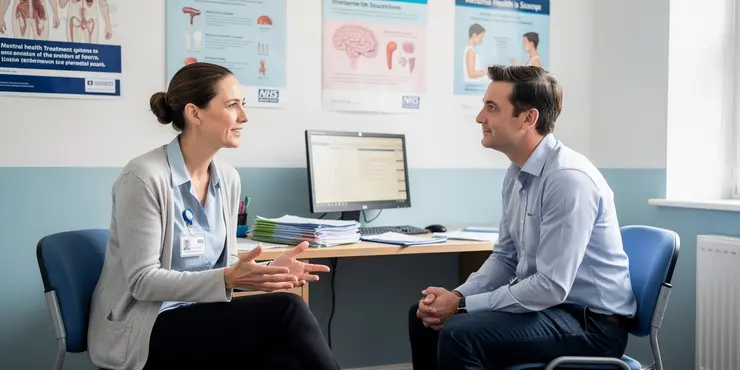
How does ketamine work?
Relevance: 18%
-
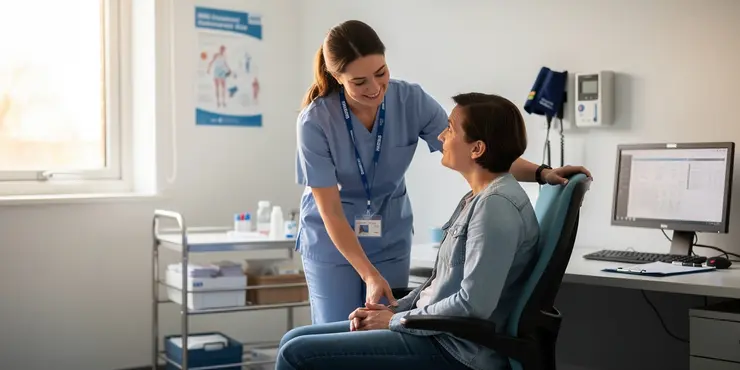
What are the common side effects of ketamine?
Relevance: 17%
-
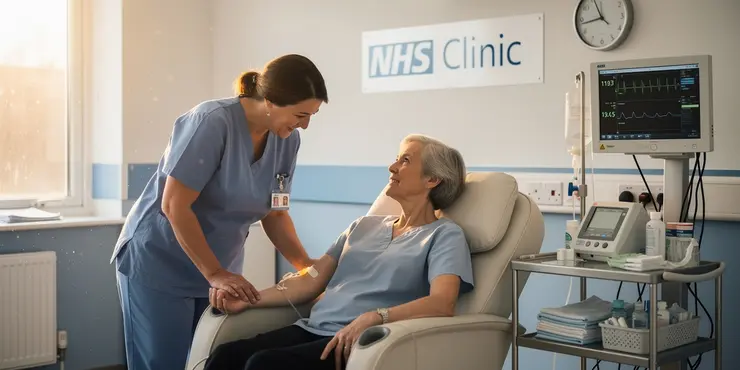
What conditions is ketamine used to treat?
Relevance: 17%
-
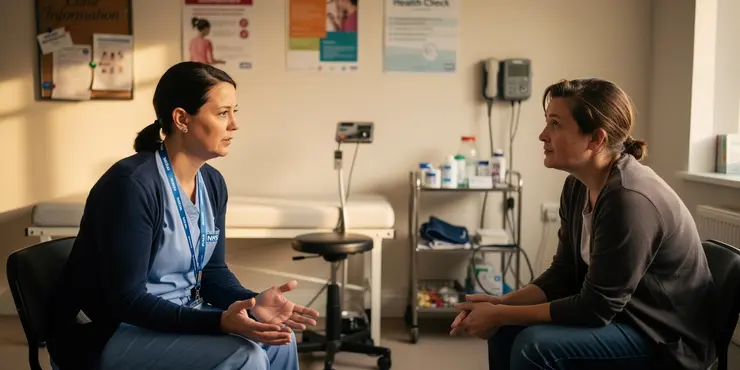
Is ketamine a controlled substance?
Relevance: 17%
-
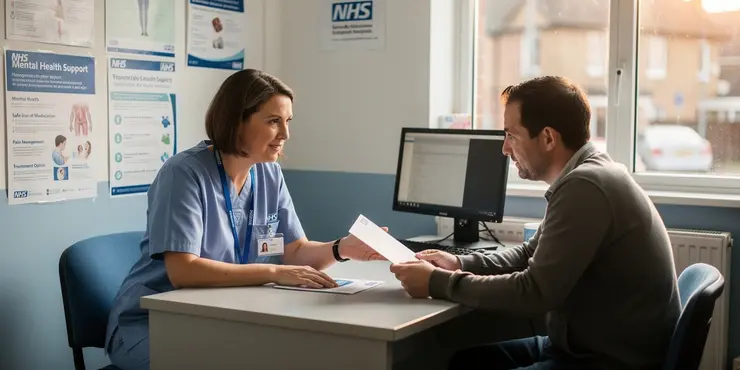
Does the classification of ketamine differ between countries?
Relevance: 16%
-
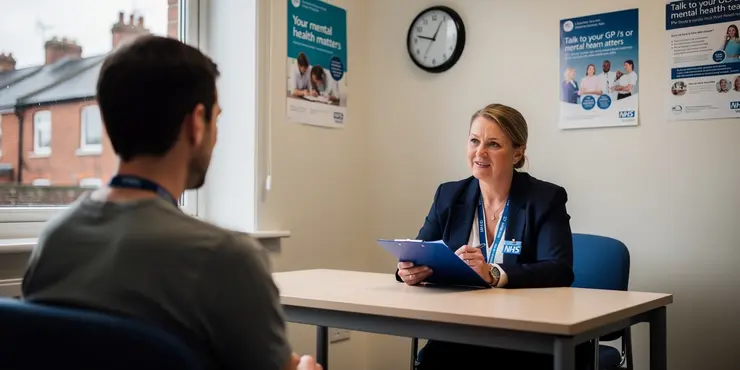
How can I legally obtain ketamine for medical use?
Relevance: 16%
-

Is Ketamine a Class B drug?
Relevance: 16%
-
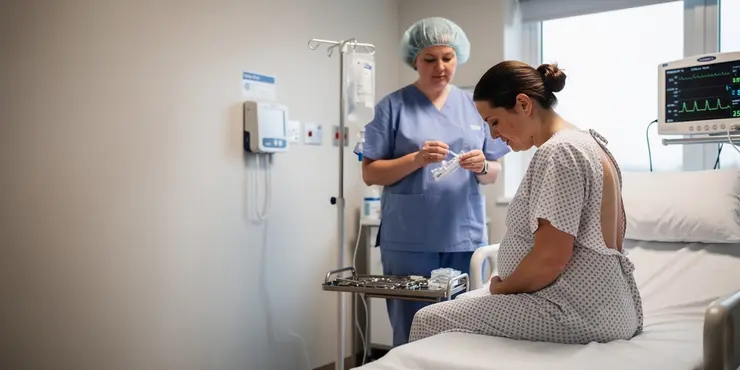
Epidural for labour at North Bristol NHS Trust
Relevance: 16%
-

What is the legal status of ketamine in Canada?
Relevance: 15%
-
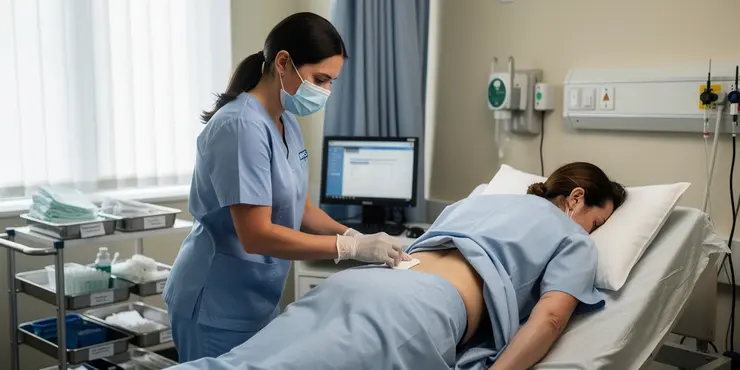
What is a lumbar puncture?
Relevance: 15%
My General Anaesthetic: What's Going To Happen? Sarah's Story at Worcestershire Royal Hospital
Preparing for the Procedure
Sarah was scheduled for surgery at Worcestershire Royal Hospital, requiring general anaesthetic. Ahead of the procedure, she received comprehensive instructions from her medical team. This included fasting guidelines to ensure her stomach was empty, reducing the risk of aspiration during anaesthesia. Sarah was also advised to disclose any medications and medical conditions to her anaesthetist.
The Anaesthetic Consultation
On the day of her surgery, Sarah met with her anaesthetist. The anaesthetist reviewed her medical history, discussed the anaesthetic process, and answered any concerns Sarah had. They explained the types of anaesthesia and decided on the best approach for her case. This personalised consultation helped ease her anxiety and ensured a tailored anaesthetic plan.
Administering the Anaesthetic
In the operating theatre, Sarah was connected to monitoring equipment to track her vital signs throughout the procedure. The anaesthetist administered the general anaesthetic via intravenous injection. Within seconds, Sarah felt drowsy and drifted off to sleep. She was unaware of the surgical procedure being performed, as the anaesthetic ensured she was completely unconscious and pain-free.
Recovery After Surgery
Sarah woke up in the recovery room under the supervision of a trained nurse. She felt groggy but comfortable, with pain management provided as needed. The nurse monitored her until she was fully awake and stable. Sarah was then moved to the ward to continue her recovery, with discharge instructions and follow-up appointments scheduled to monitor her post-operative progress.
Reflecting on the Experience
Reflecting on her experience at Worcestershire Royal Hospital, Sarah felt reassured by the professionalism and care provided. The detailed planning and supportive medical team contributed to a smooth anaesthetic experience. Understanding the step-by-step process helped Sarah feel more confident about undergoing surgery and the associated anaesthetic.
My General Anaesthetic: What's Going To Happen? Sarah's Story at Worcestershire Royal Hospital
Introduction to General Anaesthesia
General anaesthesia is a medically induced state of unconsciousness, necessary for certain medical procedures. For many, understanding the process can alleviate anxieties. Sarah's experience at Worcestershire Royal Hospital offers valuable insights into what patients can expect when undergoing general anaesthesia in the United Kingdom.
Before the Procedure: Preparation and Pre-assessment
Prior to her surgery, Sarah was scheduled for a pre-assessment appointment at Worcestershire Royal Hospital. This session involved a comprehensive evaluation of her medical history, allergies, and current medications. It was essential for ensuring her safety. During this pre-assessment, Sarah met with the anaesthetic team, who explained the anaesthesia process, risks, and benefits, allowing her to ask any questions and express concerns.
The Day of the Surgery: What to Expect
On the day of her operation, Sarah was admitted to the hospital and settled into the pre-operative waiting area. A nurse checked her vital signs, and an anaesthetist reviewed the plan. To ensure optimal safety and efficiency, Sarah was instructed not to eat or drink for a specific period before anaesthesia, known as 'fasting'.
The Anaesthesia Process
Once in the operating theatre, Sarah was introduced to the surgical team. The anaesthetist administered the anaesthetic, which involved a combination of medication given through an intravenous drip and inhalation of anaesthetic gases. Before she knew it, Sarah drifted into a deep, controlled sleep, monitored constantly to ensure her well-being.
Recovery: Waking Up and Post-operative Care
After the procedure, Sarah was moved to the recovery room, where she gradually regained consciousness under the watchful eyes of healthcare professionals. Equipped to handle any immediate post-operative needs, the nursing staff monitored her vital signs, ensuring a smooth transition from anaesthesia. Sarah experienced some disorientation and mild discomfort, which is normal and managed with medication.
Conclusion: Reflecting on the Experience
Sarah’s story at Worcestershire Royal Hospital illustrates the structured and compassionate care provided throughout the anaesthetic journey. From the initial consultation to the recovery process, each step was designed to prioritise her comfort and safety, fostering confidence in the NHS system. For individuals in the UK approaching surgery, understanding these processes demystifies general anaesthesia and underscores the comprehensive support available to patients.
My General Anaesthetic: What's Going To Happen? Sarah's Story at Worcestershire Royal Hospital
Understanding the Procedure
Being scheduled for surgery can be an anxious time, especially when it's your first experience with a general anaesthetic. Sarah recently underwent surgery at Worcestershire Royal Hospital and shared her journey to help demystify the process for others. A general anaesthetic is a combination of medications that puts you in a sleep-like state, ensuring you don’t feel pain during surgical procedures. It's commonly used for major operations, such as Sarah’s, which required careful medical oversight.
Pre-Surgery Preparations
Before the operation, Sarah had a pre-assessment appointment. This involved discussing her medical history, current medications, and any allergies. Understanding these factors helps the anaesthetist tailor the anaesthetic plan safely. She was advised to fast, avoiding food and liquid intake, for a specified period before the surgery to prevent complications during the procedure.
Arriving at the Hospital
On the day of her operation, Sarah reported to the surgical unit at Worcestershire Royal Hospital. She was admitted and met with the surgical team, including her anaesthetist, who explained what to expect and alleviated her concerns. They discussed pain management plans post-surgery and she had an opportunity to ask questions about the risks and benefits of general anaesthesia.
During the Surgery
In the operating theatre, Sarah was connected to monitors measuring her heart rate, blood pressure, and oxygen levels. The anaesthetist administered the anaesthetic, causing Sarah to quickly slip into a peaceful sleep. Throughout the procedure, the medical team closely monitored her vital signs to ensure her safety.
Recovery from Anaesthesia
Sarah woke up in the recovery room, where nurses continuously checked her vital signs and comfort level. A bit groggy and disoriented, she was kept under observation until she was fully awake. Once feeling stable, she was transferred back to the ward. The anaesthetist briefed her on potential side effects, like nausea or a sore throat, which are typically manageable and temporary.
Reflections on the Experience
Sarah found the experience at Worcestershire Royal Hospital reassuring. The professionalism and empathy displayed by the hospital staff made a challenging time much more manageable. Her story highlights the importance of clear communication and trust between patients and healthcare providers in navigating surgical experiences involving general anaesthesia in the UK’s NHS hospitals.
My General Anaesthetic: What Will Happen? Sarah's Story at Worcestershire Royal Hospital
Getting Ready for the Operation
Sarah needed an operation at Worcestershire Royal Hospital. This means she would be asleep for the operation. Before the operation, doctors and nurses told her what to do. She had to stop eating so that her stomach would be empty. This makes the anaesthetic safer. She also told the doctor about any medicines she takes.
Talking About the Anaesthetic
On the day of the operation, Sarah talked to the anaesthetist (the person who helps her sleep for the operation). They talked about her health and how the anaesthetic works. The anaesthetist answered all of her questions. This helped Sarah feel less worried and ready for the anaesthetic.
Giving the Anaesthetic
In the operation room, Sarah was connected to machines that watch her health. The anaesthetist gave her medicine through a needle in her arm. In a few seconds, Sarah felt sleepy and fell asleep. While she was asleep, she did not feel anything during the operation.
Waking Up After the Operation
Sarah woke up in a special room with a nurse by her side. She felt a bit sleepy but okay. The nurse gave her medicine if she felt any pain. The nurse stayed with her until she was fully awake. Then, Sarah went to another room to rest more. She was given instructions on what to do next and when to come back to the hospital.
How Sarah Felt About It
After the operation, Sarah thought about what happened. She was happy with how kind and careful the hospital staff were. Knowing what would happen helped her feel better about the anaesthetic and the operation. This made her feel more comfortable with the process.
My General Anaesthetic: What's Going To Happen? Sarah's Story at Worcestershire Royal Hospital
Introduction to General Anaesthesia
General anaesthesia helps people sleep deeply during some medical operations so they don’t feel anything. Knowing what happens can make people less worried. Sarah's story at Worcestershire Royal Hospital shows what it is like to have general anaesthesia in the UK.
Before the Procedure: Preparation and Pre-assessment
Before the operation, Sarah had a meeting at Worcestershire Royal Hospital. She talked about her health, allergies, and any medicines she takes. This is important for her safety. She met the anaesthetic team, who told her about the anaesthesia and let her ask questions.
The Day of the Surgery: What to Expect
On the day of her surgery, Sarah went to the hospital and waited in a special area. A nurse checked her health, and a doctor talked about the plan. Sarah was told not to eat or drink for some hours before the anaesthesia to stay safe.
The Anaesthesia Process
In the operating room, Sarah met the surgery team. The anaesthetist gave her medicine through a drip and gases to breathe. Soon, she fell into a deep sleep while the team made sure she was okay.
Recovery: Waking Up and Post-operative Care
After the surgery, Sarah woke up in the recovery room. Nurses checked her health, making sure she was okay. She felt a bit confused and uncomfortable, which is normal. The nurses gave her medicine to help.
Conclusion: Reflecting on the Experience
Sarah’s experience at Worcestershire Royal Hospital shows the careful and kind care given during the anaesthetic process. From the first meeting to recovery, every step was made to keep her safe and comfortable. Knowing what to expect can help others feel more confident about surgery in the UK.
My Sleep Medicine: What's Going To Happen? Sarah's Story at Worcestershire Royal Hospital
What Will Happen?
Having surgery can be scary, especially if it’s your first time. Sarah had surgery at Worcestershire Royal Hospital. She wants to help others understand what happens. You might get a special medicine called a general anaesthetic. This medicine makes you sleep so you don’t feel pain during the surgery. It's used for big surgeries like the one Sarah had.
Getting Ready for Surgery
Before the surgery, Sarah had a special appointment. She talked about her health, any medicines she takes, and allergies. Knowing this helps doctors plan the anaesthetic safely. Sarah was told not to eat or drink for some time before the surgery. This helps keep her safe during surgery.
Going to the Hospital
On the surgery day, Sarah went to Worcestershire Royal Hospital. She met the doctors and nurses, including the anaesthetist. The anaesthetist is the doctor who gives the sleep medicine. They talked about handling any pain after the surgery. Sarah could ask questions about what might happen.
In the Surgery Room
In the surgery room, doctors checked Sarah’s heart, blood pressure, and how she was breathing. The anaesthetist gave her the sleep medicine, and Sarah fell asleep fast. The doctors watched her closely to make sure everything was okay.
Waking Up After Surgery
Sarah woke up in a special room. Nurses checked on her to make sure she was okay. She felt a bit sleepy and confused. When she felt better, they moved her to another room. The anaesthetist talked to her about feeling sick or having a sore throat. These feelings usually go away soon.
How Sarah Felt About It
Sarah felt good about her time at Worcestershire Royal Hospital. The doctors and nurses were kind and helpful. They made a difficult time easier for her. Sarah’s story shows how talking to doctors and nurses helps make surgeries with sleep medicine less scary in hospitals in the UK.
Frequently Asked Questions
What is the purpose of a general anaesthetic?
A general anaesthetic is used to keep you unconscious during surgery so you feel no pain and have no awareness of the procedure.
How do I prepare for a general anaesthetic?
You will be given specific instructions about fasting from food and drink, and informed about any medications you need to stop taking before the procedure.
What happens on the day of the surgery?
You will be admitted to the hospital, meet the anaesthetic team, and they will explain the procedure, answer questions, and ask for your consent.
Who will administer my anaesthetic?
An anaesthetist, a doctor specialised in anaesthesia, will be responsible for administering your anaesthetic and monitoring your vital signs throughout the surgery.
How is a general anaesthetic given?
A general anaesthetic is usually given through an injection in your arm or as a gas that you breathe through a mask.
What are the risks associated with general anaesthesia?
While serious complications are rare, risks can include allergic reactions, breathing difficulties, and temporary confusion after waking.
What will I feel like after waking up from anaesthesia?
You may feel groggy or confused, have a sore throat, or experience nausea, all of which are normal side effects that usually pass quickly.
How long will it take me to wake up after the surgery?
Waking up from anaesthesia can vary, but most people regain consciousness within minutes after the procedure ends.
Can someone stay with me before and after my surgery?
Facilities may allow a family member or friend to stay with you before the operation, but due to infection control, they may not stay immediately after.
Will I have to stay in the hospital after my surgery?
The length of your hospital stay depends on the type of surgery, but many procedures allow you to go home the same day or within 1-2 days.
What should I expect regarding pain management after surgery?
You will be given pain relief medication tailored to your needs, and it's important to communicate any discomfort to the medical staff.
What are some common side effects of a general anaesthetic?
Common side effects include nausea, vomiting, sore throat, shivering, and feeling sleepy, which typically resolve on their own.
Will I be able to eat or drink immediately after surgery?
You will likely start with fluids when the medical staff are confident you are alert and free of nausea, gradually returning to solid foods.
When can I resume normal activities?
You will receive specific advice from your surgeon or healthcare team, but full recovery can vary depending on the complexity of the surgery.
What if I have more questions about my anaesthesia?
Feel free to ask your anaesthetic team any questions you have; it's important you feel informed and comfortable before your surgery.
Why do we use a general anaesthetic?
A general anaesthetic is a special kind of medicine. It helps you sleep during an operation. You do not feel any pain.
Here is how it helps:
- It makes you sleep so you don't feel anything.
- You stay asleep until the operation is done.
If you are worried, you can talk to your doctor or nurse. They will explain everything to you.
A general anaesthetic is a special medicine. It makes you sleep during surgery. This way, you do not feel any pain or know what is happening.
Getting Ready for Going to Sleep for Surgery
Before you have surgery, the doctor will give you medicine to make you sleep. This is called a "general anaesthetic." Follow these steps to get ready:
- Follow Instructions: The doctor will tell you when you need to stop eating and drinking before your surgery. It is important to listen to these instructions.
- Wear Comfortable Clothes: On the day of your surgery, wear clothing that is easy to take off and put on.
- Talk to Your Doctor: Tell the doctor if you are taking any medicines. The doctor might tell you to stop taking some of them before the surgery.
- Ask Questions: If you are worried or confused, ask the doctor or nurse to explain what will happen. They are there to help you understand and feel safe.
These steps will help you be ready and safe on the day of your surgery.
You will get clear instructions on when to stop eating and drinking. You will also be told if you need to stop taking any medicine before the procedure.
What happens on the day you have the surgery?
You will go to the hospital and meet the team who help you sleep for surgery. They will tell you what will happen, answer your questions, and ask if you agree to go ahead.
Who will give me the medicine to help me sleep during my operation?
When you have an operation, a special doctor, called an anaesthetist, will give you medicine. This medicine helps you sleep so you don’t feel anything. The anaesthetist will stay with you and make sure you are safe.
If you want to learn more, you can:
- Ask your doctor questions.
- Watch videos for kids about going to the hospital.
- Read books with pictures about hospitals.
A special doctor called an anaesthetist will give you medicine so you don't feel pain during the operation. They will also check your heartbeat and breathing to make sure you are okay.
How do doctors give a general anaesthetic?
A general anaesthetic is medicine that makes you sleep during an operation.
There are two ways to get a general anaesthetic:
- Breathing: You wear a mask and breathe in the medicine.
- Injection: A doctor puts the medicine into your arm through a small needle.
When you wake up, you might feel sleepy, and a nurse will be there to help you.
If this is hard to understand, you can:
- Ask someone to read it with you.
- Look at pictures or videos about general anaesthetic.
A special kind of sleep medicine called anaesthetic can help you sleep during an operation. Doctors give it to you with a needle in your arm or a mask to breathe in.
What can happen with general anaesthesia?
General anaesthesia is medicine that makes you sleep for an operation. Most people are okay with it, but sometimes things can go wrong.
- You might feel sick afterwards.
- You could have a sore throat.
- Sometimes people feel dizzy.
- Very rarely, there can be more serious problems.
Always talk to your doctor before having anaesthesia. They will tell you what to expect and how to stay safe.
Ask someone you trust to help you understand. You can also use pictures or videos to learn more.
Big problems don't happen much. But sometimes, there can be things like being allergic, having trouble breathing, or feeling mixed up after waking up.
How will I feel after waking up from the medicine that makes me sleep?
You might feel a bit sleepy or mixed-up. Your throat might hurt a little. You could also feel a bit sick in your tummy. These are all normal and usually go away fast.
How long until I wake up after the surgery?
After the surgery, you might feel sleepy for a while. Most people wake up in an hour. Sometimes it can take longer.
If you're worried, you can ask the doctor or nurse about it.
It helps to have someone with you after the surgery. They can help you if you feel too sleepy.
Waking up after surgery sleep can be different for everyone. Most people wake up a few minutes after the surgery is finished.
Can a person be with me before and after my surgery?
Yes, you can have someone stay with you. They can be with you before and after your surgery to help you feel better.
It is a good idea to tell the hospital if you want someone to stay with you. They can let you know what to do.
If it's hard to ask, you can use a picture chart or write it down.
Before your operation, a family member or friend might be able to stay with you. But right after the operation, they might not be allowed to stay because of infection rules.
Will I stay in the hospital after my surgery?
After your surgery, the doctor will tell you if you need to stay in the hospital. Sometimes, people go home the same day. Other times, they may need to stay for one or more nights to rest and get better.
If you feel worried, you can talk to your doctor or nurse. They can tell you what will happen and help you feel better.
Use simple sentences and ask questions if you do not understand. Family or friends can also help you understand and remember what the doctor says.
How long you stay in the hospital after surgery depends on what kind of surgery you have. For many surgeries, you can go home the same day or after 1-2 days.
What can I expect about pain management after surgery?
After your operation, you might feel some pain. Doctors and nurses will help make the pain better.
Here are things that can help:
- Medicine: Doctors can give you medicine to stop the pain.
- Tell someone: If it hurts a lot, tell a nurse or doctor.
- Relaxation: Try deep breathing to feel better.
- Support: Ask your family or friends to stay with you.
If you have questions, ask your doctor or nurse. They are there to help you.
You will get medicine to help with your pain. The medicine is just for you. It's important to tell the doctors and nurses if you feel any pain or if you are not comfortable.
What happens to your body when you have a general anaesthetic?
When you have a general anaesthetic, it makes you fall asleep so you don’t feel anything during surgery. But it can also cause some side effects.
Here are some things that might happen:
- Feeling sick or throwing up.
- Sore throat because of the breathing tube.
- Feeling dizzy or having trouble standing up.
- Being sleepy for a while after you wake up.
- A slight headache.
If you have a smartphone or tablet, you can use apps that help read the text out loud. This might make understanding easier.
Some common side effects are feeling sick, throwing up, having a sore throat, shivering, and feeling sleepy. These problems usually go away by themselves.
If you find it hard to read and understand words, you can use drawings or photos to help. Listening to the words read out loud can also be very helpful.
Can I eat or drink right after my surgery?
After your surgery, you might need to wait before you can eat or drink.
Ask your doctor what is best for you.
If you're not sure, try these things to help you:
- Use a clock or timer to remind you when you can eat or drink.
- Talk to family or friends if you need help understanding when to eat or drink.
First, you will drink liquids. This is when the doctors think you are awake and not feeling sick. After that, you can slowly start eating solid foods again.
When can I start doing my usual activities again?
Your doctor or nurse will give you special advice. Getting better depends on how complicated the operation was.
What if I have more questions about my sleep medicine for surgery?
If you have more questions about the medicine that helps you sleep during surgery:
- Ask your doctor or nurse. They are there to help and can answer your questions.
- You can write down your questions so you don't forget them.
- Bring a family member or friend with you to talk to the doctor. They can help you understand.
- Use pictures or videos to help explain what you want to know.
It is okay to ask as many questions as you need to feel better and safe.
You can ask the people who give you medicine to help you sleep during your operation any questions. It is important to know what will happen and feel okay before your operation.
Useful Links
This website offers general information and is not a substitute for professional advice.
Always seek guidance from qualified professionals.
If you have any medical concerns or need urgent help, contact a healthcare professional or emergency services immediately.
Some of this content was generated with AI assistance. We’ve done our best to keep it accurate, helpful, and human-friendly.
- Ergsy carfully checks the information in the videos we provide here.
- Videos shown by Youtube after a video has completed, have NOT been reviewed by ERGSY.
- To view, click the arrow in centre of video.
- Most of the videos you find here will have subtitles and/or closed captions available.
- You may need to turn these on, and choose your preferred language.
- Go to the video you'd like to watch.
- If closed captions (CC) are available, settings will be visible on the bottom right of the video player.
- To turn on Captions, click settings .
- To turn off Captions, click settings again.
More Items From Ergsy search
-

Top 5 questions about having a general anaesthetic
Relevance: 100%
-

My General Anaesthetic: What's Going To Happen? Sarah's Story at Worcestershire Royal Hospital.
Relevance: 83%
-

Having an anaesthetic for your operation - for over 8s
Relevance: 67%
-

Anaesthetic procedure for elective caesarean section (C section)
Relevance: 65%
-

Your anaesthetic choices for your planned hip or knee replacement surgery at the RUH.
Relevance: 60%
-

Surgery under local anaesthetic in the Minor Ops Unit at North Bristol NHS Trust
Relevance: 58%
-
How is health-related anxiety different from general anxiety?
Relevance: 32%
-

What is the difference between the Chief Law Officer for England and Wales and the Solicitor General in the UK?
Relevance: 32%
-

What is a social prescriber, and how do they support general practice?
Relevance: 31%
-

What is eczema? General Information
Relevance: 31%
-

HOW A REDUNDANCY WORKS - General Information
Relevance: 30%
-

Glaucoma: general side effects of eye drops
Relevance: 29%
-

What are the medical uses of ketamine?
Relevance: 28%
-

Are there any legal uses for ketamine?
Relevance: 27%
-

How is ketamine used in veterinary medicine?
Relevance: 26%
-

What are some general recommendations for medication use during pregnancy?
Relevance: 26%
-

What is spinal anaesthesia?
Relevance: 26%
-

Where can I find general information about air pollution and asthma?
Relevance: 25%
-

Is spinal anaesthesia safe for a Caesarean section?
Relevance: 25%
-

How much caffeine is generally considered safe for people with high blood pressure?
Relevance: 24%
-

Spinal Anaesthesia for Caesarean Section
Relevance: 24%
-

What type of anaesthesia is used during hip replacement surgery?
Relevance: 22%
-

Is ketamine considered a controlled substance in the United States?
Relevance: 21%
-

Can I breastfeed immediately after a Caesarean section under spinal anaesthesia?
Relevance: 20%
-

How is spinal anaesthesia different from an epidural?
Relevance: 19%
-

How will I be positioned for spinal anaesthesia?
Relevance: 19%
-

Is ketamine legal?
Relevance: 19%
-

What is the classification of ketamine?
Relevance: 19%
-

What should I expect after the spinal anaesthesia wears off?
Relevance: 19%
-

Will I be awake during a C-section?
Relevance: 19%
-

How does ketamine work?
Relevance: 18%
-

What are the common side effects of ketamine?
Relevance: 17%
-

What conditions is ketamine used to treat?
Relevance: 17%
-

Is ketamine a controlled substance?
Relevance: 17%
-

Does the classification of ketamine differ between countries?
Relevance: 16%
-

How can I legally obtain ketamine for medical use?
Relevance: 16%
-

Is Ketamine a Class B drug?
Relevance: 16%
-

Epidural for labour at North Bristol NHS Trust
Relevance: 16%
-

What is the legal status of ketamine in Canada?
Relevance: 15%
-

What is a lumbar puncture?
Relevance: 15%


